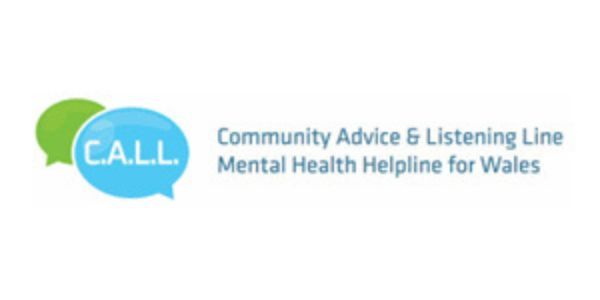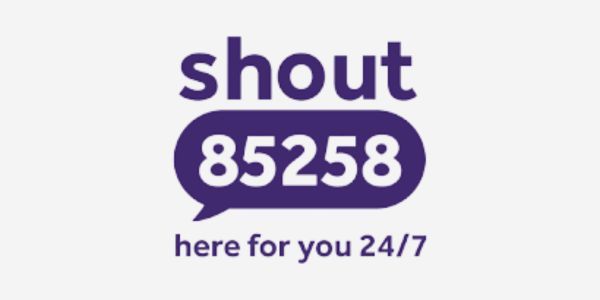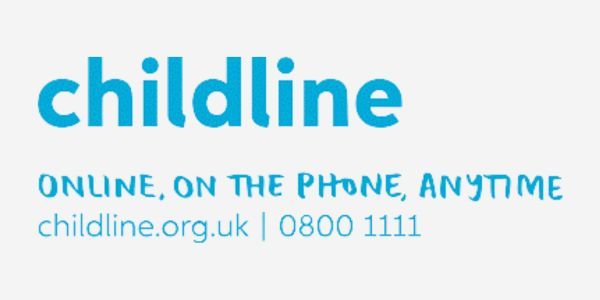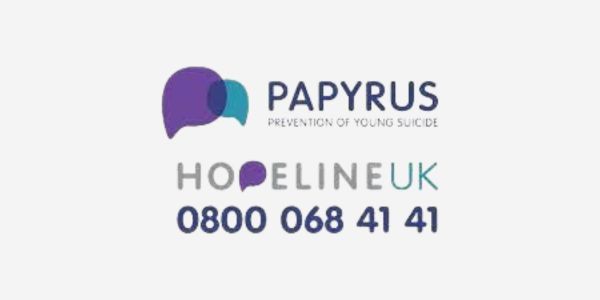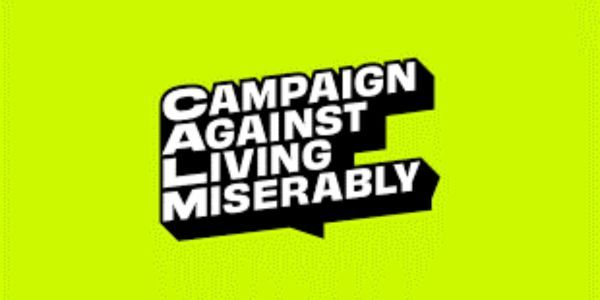Constipation is common in childhood, particularly when children are being potty trained at around two to three years old. This advice is aimed at children after weaning (older than 6 months old).
Constipation
What are the symptoms of constipation in children?
These can be tricky to spot. Your child may be constipated if:
- they don't poo at least three times a week
- their poo is often large, hard and difficult to push out
- their poo looks like "rabbit droppings" or little pellets
If your child is potty trained, soiled pants can be another sign of constipation, because runny poo (diarrhoea) may leak out around the hard, constipated poo. This is called overflow soiling.
If your child is constipated, they may find it painful to poo. This can create a cycle: the more it hurts, the more they hold on to poo. The more constipated they get, the more it hurts, and so on. Even if pooing isn't painful, once your child is really constipated, they may try to avoid going to the toilet altogether.
Why do children get constipated?
Your child may be constipated because they:
- Hold onto stool due to fear of using toilets (smelly / lack of privacy etc)
- aren't drinking enough
- aren't eating enough high-fibre foods like fruit and veg
- are having problems with potty (or toilet) training
- are worried or anxious about something, such as moving house, starting nursery or the arrival of a new baby.
Find out about other causes of constipation in children.
What should you do and when should you worry?
In general, children only need treatment for constipation if it is causing them pain or problems (such as soiling in school).
If your child is experiencing significant pain or regularly soiling their pants, despite being on treatment, you should take them back to see your GP. Some children need more intensive treatment of their constipation. Your GP may decide that a paediatrician needs to be involved in their care.
Not all tummy pain is due to constipation - if your baby/child develops new severe tummy ache, please click here for advice about what to do.
You need urgent help.
Go to the nearest Hospital Emergency (A&E) Department or phone 999
What if your child’s constipation continues despite changing their diet?
If your child remains constipated despite the options listed above, take them to their GP who can decide if they need medicines. The treatment for constipation depends on your child’s age. The longer your child is constipated, the longer it can take to get back to normal, so do get help early from your GP.
Laxatives often help children, alongside diet and lifestyle changes. Movicol is most commonly used as a stool softener, with stimulants such as senna added in if no improvement. For a significant blockage: disimpaction with Movicol is initially with 2 sachets a day for children under 5 years of age (with 60ml water per sachet) increasing by 2 sachets a day (max 8/day) until stools watery and clear/brown then halve dose then reduce by 1 sachet a week to a regular dose (maintenance) that helps keep the stools soft. Spacing out the doses through the day, and mixing squash or juice or keeping the dose cold in the fridge may help taste.
It may take several months for the treatments to work, but keep trying until they do. Remember that laxative treatment may make your child's overflow soiling worse for a time.
You need to contact a doctor or nurse today.
Please ring your GP surgery or call NHS Wales 111
Firstly, try to stay calm
Getting constipated and soiling their clothes isn't something your child is doing on purpose, so please be patient. You may both find the situation stressful, but staying positive and relaxed is the best attitude to help your child, and praising positive steps is important.
Think about changes to your child’s diet
Make sure that children drink plenty of fluids and encourage them to eat fruit. Chop or purée it if it's easier for them to eat. The best fruits for constipation include apples, grapes, pears and strawberries.
If your child is potty training, they may be feeling anxious or stressed about using the toilet. This can cause them to hold in poo and leads to constipation. Give your child plenty of time (5minutes) to use the toilet while they are still learning. Encourage them when they do use the toilet. Some parents find a reward chart works. Your health visitor can also provide advice and support.
Self care
Continue providing your child’s care at home. If you are still concerned about your child, call NHS Wales 111
How to prevent your child getting constipated
- Make sure your child has plenty to drink – offer breastfed babies who aren’t eating solids yet plenty of breastfeeds. Formula-fed babies can have extra drinks of water between their formula feeds. See more advice on drinks for babies and toddlers.
- Give your child a variety of foods, including plenty of fruit and vegetables, which are a good source of fibre. See what to feed young children.
- Encourage your child to be physically active. For more information, read the physical activity guidelines for children aged under five years.
- Get your child into a routine of regularly sitting on the potty or toilet, after meals or before bed (for 5 minutes), and praise them whether or not they poo. This is particularly important for potty-trained boys, who may forget about pooing once they are weeing standing up. Reward schemes appropriate for age are important; as is consistency and patience.
- Make sure your child can rest their feet flat on the floor or a step when they're using the potty or toilet, to get them in a good position for pooing. Take a look at the Children's Bowel & Bladder Charity's leaflet, Children’s Bowel Problems for a picture of this.
- Ask if they feel worried about using the potty or toilet – some children don't want to poo in certain situations, such as at nursery or school.
- Stay positive and reassuring, so that your child doesn't see going to the toilet as a stressful situation – you want your child to see pooing as a normal part of life, not something to be ashamed of.
For more information and support:
- NHS choices info on constipation in children
- ERIC’s guide to children’s bowel problems
- Contact the ERIC helpline on 0845 370 8008, Monday to Thursday 10am to 2pm, or email them a question ( helpline@eric.org.uk )
- NICE patient information
This guidance is written by healthcare professionals from across Hampshire, Dorset and the Isle of Wight.
NHS 111 Wales
Website: NHS 111 Wales
NHS 111 Wales (Option 2) telephone service is available 24/7 and can be used for urgent mental health advice and support.
Meic
Website: www.meiccymru.org
Meic is the helpline service for children and young people up to the age of 25 in Wales. Chat online, freephone 080880 23456, or text 84001.
C.A.L.L. Community Advice Listening Line
Website: www.callhelpline.org.uk
Provides a confidential mental health listening and emotional support line which is open 24/7. Call 0800 132 737 or text ‘help’ to 81066.
Shout
Website: www.giveusashout.org
Text ‘shout’ to 85258 anytime, day or night.
Childline
Website: www.childline.org.uk
If you’re under 19 you can confidentially call, chat online or email about any problem big or small.
Samaritans
Website: www.samaritans.org/wales/samaritans-cymru/
Call 116 123 free, anytime, day or night.
Papyrus
Website: www.papyrus-uk.org
Are you, or is a young person you know, not coping with life? For confidential suicide prevention advice contact HOPELINEUK. We are open 9am–midnight every day.
Campaign Against Living Miserably (CALM) for men
Website: www.thecalmzone.net
Need help? Call our helpline 5pm-midnight, 365 days a year on 0800 58 58 58.
DAN 24/7 - Wales Drug and Alcohol Helpline
Website: www.dan247.org.uk/
Freephone 0808 808 2234, or text DAN to 81066.
NHS 111 Wales
Website: NHS 111 Wales
NHS 111 Wales (Option 2) telephone service is available 24/7 and can be used for urgent mental health advice and support.
Meic
Website: www.meiccymru.org
Meic is the helpline service for children and young people up to the age of 25 in Wales. Chat online, freephone 080880 23456, or text 84001.
C.A.L.L. Community Advice Listening Line
Website: www.callhelpline.org.uk
Provides a confidential mental health listening and emotional support line which is open 24/7. Call 0800 132 737 or text ‘help’ to 81066.
Shout
Website: www.giveusashout.org
Text ‘shout’ to 85258 anytime, day or night.
Childline
Website: www.childline.org.uk
If you’re under 19 you can confidentially call, chat online or email about any problem big or small.
Samaritans
Website: www.samaritans.org/wales/samaritans-cymru/
Call 116 123 free, anytime, day or night.
Papyrus
Website: www.papyrus-uk.org
Are you, or is a young person you know, not coping with life? For confidential suicide prevention advice contact HOPELINEUK. We are open 9am–midnight every day.
Campaign Against Living Miserably (CALM) for men
Website: www.thecalmzone.net
Need help? Call our helpline 5pm-midnight, 365 days a year on 0800 58 58 58.
DAN 24/7 - Wales Drug and Alcohol Helpline
Website: www.dan247.org.uk/
Freephone 0808 808 2234, or text DAN to 81066.
- Try to stay calm.
- Tell them you are there for them and that you are not upset or angry.
- Tell them you are pleased they have told you they are having thoughts of harming themselves and that you are able to help them through this time.
- Listen to what they are saying even if they are venting anger or other negative emotions at you.
- Listen without interrupting.
- Validate their thoughts and feelings – they are real and important.
- Try to be emotionally available and present for your child.
- Once things appear to be settling please encourage your child to relax as the day/ evening progresses and make some suggestions for things you can do together to distract them from their thoughts (see below for some ideas).
- Try to proactively manage any potential conflicts or arguments within your immediate environment.
- Be mindful of excessive use of mobile devices but that young people really need to feel connected to others at times of distress.
If you are concerned that your child/ young person is at risk of harming themselves, please ensure the following:
- All medications (prescribed/ over the counter/ vitamins) are removed and/ or locked in a strong lockable medical box or locked cupboard. Medication needs to be stored in this way in all houses where the young person stays, including grandparents, foster carers, step parents and residential homes.
- All sharp objects, such as knives and razor blades, to be removed and/ or stored securely.
- Ensure the young person has not got a stock of medication or sharp objects in their room or amongst their property.
- Other environmental risks in your home should be considered, e.g. removing ropes, ties, dressing gown ties.
- Do not allow your child/ young person to go out alone or with friends during times of distress and when they are voicing thoughts of self-harm or suicide.
- Monitor your child/ young person’s mood and behaviour closely.
- Increase your presence and supervision of your child at home, if needed remaining awake or checking on them during the night.
- Ask them about thoughts of self-harm and suicide.
- Look out for any warning signs in your child/ young person that they might be struggling.
- Distract yourself - watch a film or TV programme, play a computer game that absorbs your mind, or read a book you’re really interested in
- Get creative – drawing, mindful colouring, taking photos, listening to music, singing
- Get moving – walk, run, dance, do an exercise or yoga video
- Comfort yourself – have bubble bath or shower, eat something you like, stroke a pet, cuddle up tightly in a blanket, rock/ hug yourself, spray a favourite perfume
Alternatives to self-harm when the urge to harm is very strong:
- Hold ice in your hand for as long as you can
- Step under a cold shower briefly
- Run your hands under cold water
- Snap an elastic band against your wrist
- Hit a cushion against the wall or bed
- Punch a punch bag or pillow
- Go for a fast paced walk or run up and down the stairs several times
- Tear or scrunch up paper







